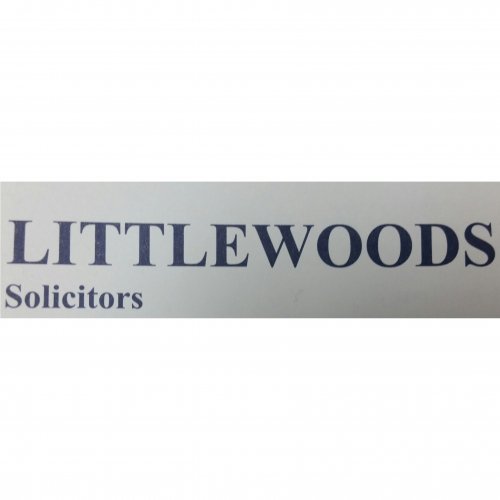Best Collaborative Law Lawyers in Hong Kong
Share your needs with us, get contacted by law firms.
Free. Takes 2 min.
Free Guide to Hiring a Family Lawyer
Or refine your search by selecting a city:
List of the best lawyers in Hong Kong
About Collaborative Law in Hong Kong
Collaborative Law in Hong Kong is an alternative dispute resolution method that facilitates a cooperative approach to resolving disputes outside of the courtroom. It is particularly popular in family law cases, where parties and their lawyers commit to resolving issues amicably through open communication and negotiation, focusing on the interests and needs of all involved rather than engaging in adversarial litigation.
Why You May Need a Lawyer
There are several situations where individuals may require legal help in the realm of Collaborative Law:
- Divorce or separation where parties wish to maintain a cordial relationship, especially for the benefit of any children involved.
- Business disputes that require maintaining long-term relationships post-resolution.
- Inheritance cases where family members prefer to handle matters privately and thoughtfully.
- Other civil disputes where a less adversarial approach is deemed beneficial due to personal or business relations.
Local Laws Overview
In Hong Kong, Collaborative Law practice is supported by a legal framework that encourages dispute resolution methods outside traditional litigation. Understanding key local legal aspects includes:
- The confidentiality of communications within collaborative proceedings is protected, allowing for open discussions.
- Agreements reached through Collaborative Law are legally binding and enforceable in the same way as court judgments.
- Collaborative Law is supported by organizations such as the Hong Kong Family Law Association, providing professional guidelines for the process.
Frequently Asked Questions
What is the main advantage of Collaborative Law compared to litigation?
The primary advantage is that it allows parties to resolve disputes amicably without the adversarial nature and stress of courtroom proceedings, often saving time and costs.
Is Collaborative Law suitable for all kinds of disputes?
Collaborative Law is most effective for cases where parties have a mutual interest in preserving relationships, such as family or business contexts. It may not be suitable for all disputes, particularly where parties are unwilling to negotiate in good faith.
Are the outcomes of Collaborative Law legally binding?
Yes, agreements reached in Collaborative Law processes are legally binding once formalized into agreements, similar to court orders.
What happens if the parties cannot reach an agreement?
If an agreement cannot be reached, the collaborative process ends, and parties may opt for traditional litigation. Importantly, the lawyers involved in the collaborative process cannot represent the clients in subsequent litigation.
Who are the professionals involved in a Collaborative Law process?
Besides the clients and their lawyers, the collaborative process may involve neutral experts such as financial advisors, child specialists, or mental health professionals to provide additional support and perspectives.
How long does the Collaborative Law process take?
The duration varies depending on the complexity of the issues and the cooperation between parties, but it is generally faster than litigation.
Is the Collaborative Law process confidential?
Yes, the process is confidential, ensuring that matters discussed are not disclosed publicly or used in court if the collaboration fails.
Can Collaborative Law be used for international cases?
Yes, Collaborative Law can be applied in international disputes as long as parties agree to the process, considering jurisdictional issues may arise.
What happens if one party decides to withdraw from the process?
If a party withdraws, the collaborative process terminates, and parties may pursue other dispute resolution methods. The withdrawing party will need to engage a new lawyer for further proceedings.
How do I find a collaborative lawyer in Hong Kong?
Consult the Hong Kong Family Law Association or seek recommendations from professional legal directories that list practitioners experienced in Collaborative Law.
Additional Resources
Consider the following resources for more information and assistance:
- Hong Kong Family Law Association: Provides resources and listings of qualified collaborative law professionals.
- Law Society of Hong Kong: Offers guidance and a directory of legal practitioners in various fields.
- Department of Justice Hong Kong: Offers information about dispute resolution alternatives like collaborative law.
Next Steps
If you are considering Collaborative Law, the next steps involve:
- Educating Yourself: Gather more information on how Collaborative Law may suit your needs.
- Consulting with a Lawyer: Engage a solicitor or legal firm with expertise in Collaborative Law to evaluate your situation and guide you through the process.
- Assessing the Approach: Collaborate with your chosen lawyer to ascertain the best approach for your specific dispute.
- Committing to the Process: If Collaborative Law is suitable for your case, commit to actively participating in good faith negotiations.
By engaging with a knowledgeable lawyer and considering all available resources and support, you can navigate Collaborative Law effectively for a more harmonious resolution to disputes.
Lawzana helps you find the best lawyers and law firms in Hong Kong through a curated and pre-screened list of qualified legal professionals. Our platform offers rankings and detailed profiles of attorneys and law firms, allowing you to compare based on practice areas, including Collaborative Law, experience, and client feedback.
Each profile includes a description of the firm's areas of practice, client reviews, team members and partners, year of establishment, spoken languages, office locations, contact information, social media presence, and any published articles or resources. Most firms on our platform speak English and are experienced in both local and international legal matters.
Get a quote from top-rated law firms in Hong Kong — quickly, securely, and without unnecessary hassle.
Disclaimer:
The information provided on this page is for general informational purposes only and does not constitute legal advice. While we strive to ensure the accuracy and relevance of the content, legal information may change over time, and interpretations of the law can vary. You should always consult with a qualified legal professional for advice specific to your situation.
We disclaim all liability for actions taken or not taken based on the content of this page. If you believe any information is incorrect or outdated, please contact us, and we will review and update it where appropriate.
Browse collaborative law law firms by city in Hong Kong
Refine your search by selecting a city.














